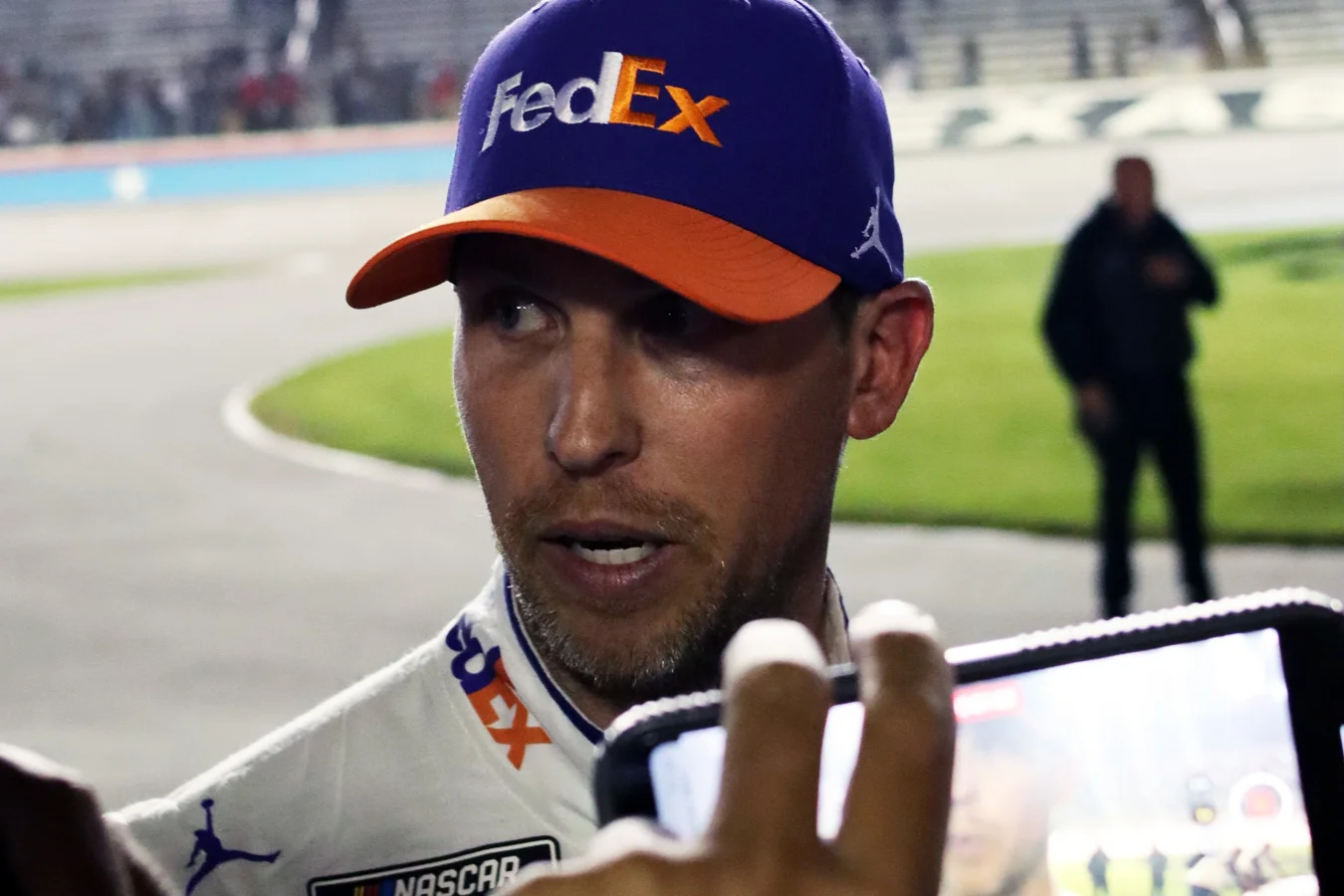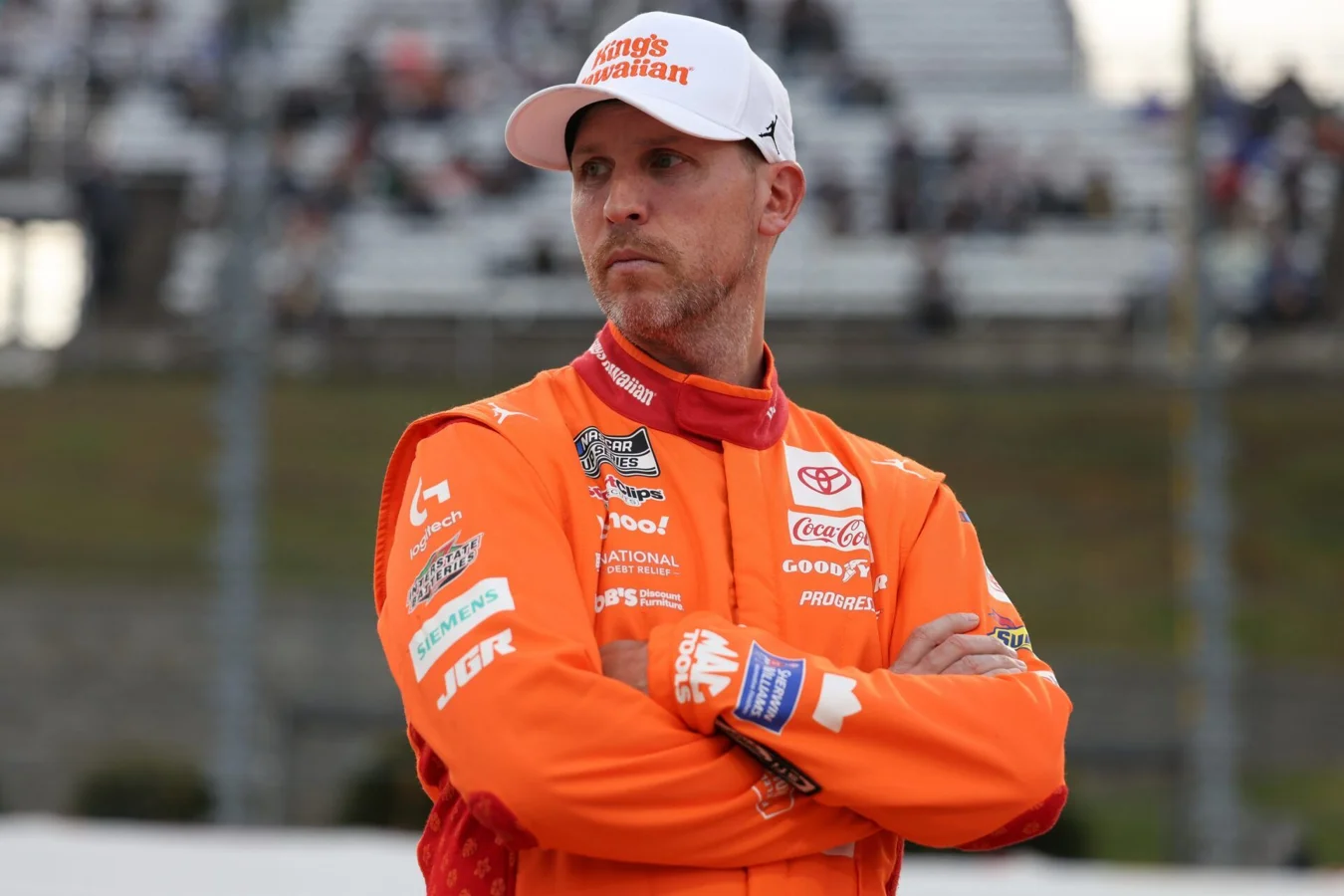Denny Hamlin, a noted competitor in NASCAR’s Cup Series, sharply criticized fellow driver Carson Hocevar following a tumultuous playoff race at Martinsville Speedway, placing the spotlight on Denny Hamlin Martinsville criticism after a race punctuated by several wrecks involving the rookie. The episode highlights growing tension among drivers over aggressive track maneuvers and the lasting impact such decisions have on the season’s closing races.
Frustrations Boil Over After Multiple Incidents at Martinsville
Carson Hocevar, representing Spire Motorsports, found himself at the center of controversy during Sunday’s playoff race in Martinsville. His aggressive driving style led to involvement in three separate caution-causing incidents. These events fueled complaints from veteran drivers, with Denny Hamlin openly expressing dissatisfaction over what he viewed as reckless and unnecessary risks on the track.
Hamlin, known for his experience with Joe Gibbs Racing (JGR) and as a multi-time Daytona 500 champion, made clear his concerns during the latest episode of the Actions Detrimental podcast. He addressed what he considers questionable tactics among competitors, especially when it comes to defending positions far from the front early in the race. He questioned why drivers persistently block others and chop lines early on when ample time remains in the event, and warned that such tactics are remembered by everyone involved.

“I don’t know why some people feel it’s so necessary air-block and chop noses on Lap 100 when we got such a long way to go. If you’re good enough, you will get your shot at some point in the day. … Everyone remembers stuff. When you drive them like a (expletive), they definitely remember.”
Denny Hamlin, via Happy Hour podcast
Hamlin’s remarks suggest a deeper frustration with the culture of aggressive blocking, which he believes leads only to on-track chaos and long-term retaliation among drivers. The seasoned competitor argued that drivers who push boundaries early with aggressive moves tend to tarnish their standing among their peers and open themselves up to future payback.
Hamlin Singles Out Hocevar as an Example of Misguided Aggression
In the aftermath of the race, Hamlin singled out Carson Hocevar’s conduct as illustrative of the dangers associated with constant defensive driving. According to Hamlin, excessive resistance can escalate race tension and ultimately involve drivers in multiple accidents, as was the case with Hocevar at Martinsville.
“Why do you think Carson Hocevar was in four wrecks? I’m just saying, it’s OK to let people go and if you’re good enough, you’re going to get your shot. Even though those guys were racing my teammate and racing for their own spot in the final four, to me it didn’t really matter. It is what it is.”
Denny Hamlin
Hamlin underscored his belief that letting faster cars pass can sometimes be a better strategy, rather than always defending a position, especially considering that sustained efforts can lead to avoidable accidents. He mentioned that if a driver and their car are truly competitive, patience and smart racing decisions will eventually put them back in contention for the positions they momentarily relinquish.
This stance not only criticizes Hocevar’s driving but also communicates Hamlin’s philosophy regarding earning respect and long-term success in NASCAR. By referencing his own teammates and other competitors like Joey Logano and Chase Elliott, Hamlin highlights the broader impact such decisions have on relationships among drivers as they chase championship spots.
Building Goodwill: Hamlin’s Own Approach to On-Track Etiquette
Reflecting on his actions during the same race, Hamlin explained that he sometimes allows faster competitors behind him to overtake without resorting to blocking, especially as his own pace diminishes. He sees this strategy as both practical and as a way to earn respect among his peers, suggesting that it can result in reciprocal treatment in future races—including the crucial Cup finale at Phoenix Raceway.
“I let no less than five cars actually pass, like let them pass. I could’ve just held my line and air-blocked them and made them get their stuff hot and it would have been very detrimental to them. Maybe they would have passed me, maybe not.”
Denny Hamlin
Hamlin acknowledges the potential payoff for such gestures: drivers who benefit from his leniency may in turn make his own future racing less contentious, particularly when stakes are high. However, he recognizes that there are no guarantees in such an intensely competitive environment, and that competitors like Logano and Elliott could still choose to make things difficult for him regardless of past favors.
“But then this weekend, if I’m racing those guys, hopefully they pay that back, right? There was nothing to gain by frustrating Chase Elliott or frustrating Joey Logano. It’s deposits and withdrawals and if I get it back, I get it back. If I don’t, I don’t.”
Denny Hamlin
Hamlin’s reasoning reveals a calculated approach to NASCAR’s psychological gamesmanship as well as the physical challenges on the track. He seems aware that strong relationships—and reputations for fairness or aggression—can influence the outcome of decisive races, like the upcoming finale in Phoenix.
Significance Ahead of NASCAR’s Championship Decider
Denny Hamlin’s outspoken critique of Carson Hocevar after Martinsville brings renewed attention to the ongoing debate about racing etiquette in high-stakes NASCAR events. The episode underscores the risks of aggressive defense, especially when the race is far from its conclusion, and how those decisions can haunt drivers in both reputation and results. As Hamlin continues to chase his elusive first Cup championship, his strategy of building goodwill on the track may play a crucial role in his performance at Phoenix—a dynamic that will be closely watched not only by fans but by competitors like Joey Logano, Chase Elliott, and his JGR teammates. The events at Martinsville and the warnings issued by Hamlin suggest that the balance between aggression and respect will be pivotal in determining who emerges victorious as the season draws to a close.
